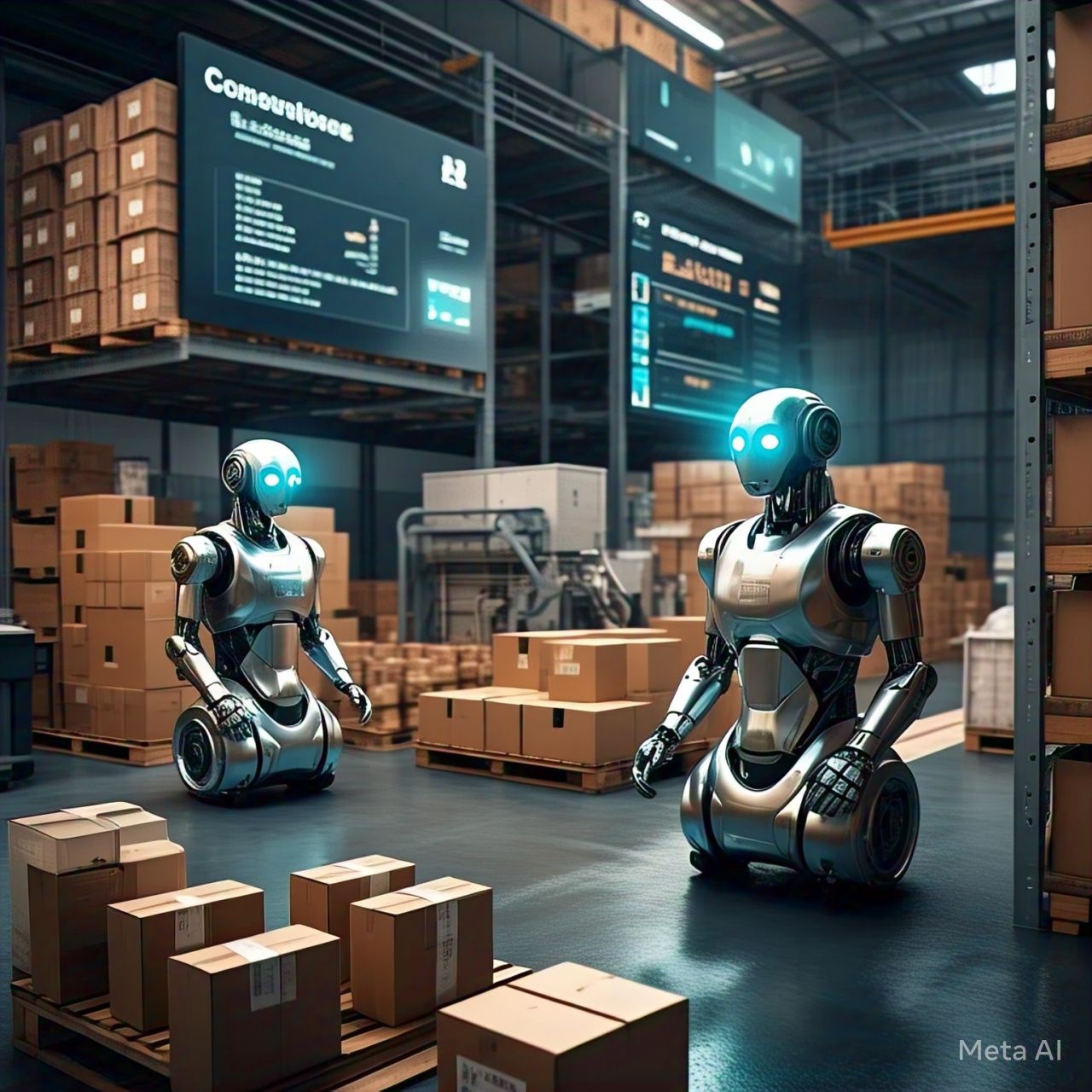Table of Contents
- Introduction
- AI-Powered Personalization
- Chatbots and Virtual Assistants
- AI-Driven Pricing Strategies
- Enhanced Search and Recommendation Engines
- AI in Supply Chain and Inventory Management
- Fraud Detection and Cybersecurity
- AI-Powered Visual Search and Augmented Reality
- Voice Commerce and AI Assistants
- The Future of AI in E-commerce
- Conclusion
- FAQs
Introduction
E-commerce has evolved rapidly, and AI is at the forefront of this transformation. From personalized recommendations to fraud detection, artificial intelligence is reshaping how consumers shop online. With the growth of big data and machine learning, AI is creating a seamless, secure, and more engaging shopping experience. This article explores how AI is shaping the future of e-commerce and online shopping.
AI-Powered Personalization
Personalization is key to enhancing customer experience, and AI-driven algorithms are making it more effective than ever. AI analyzes browsing history, purchase behavior, and user preferences to deliver highly tailored product recommendations.
Benefits:
- Increased Sales: Personalized recommendations drive higher conversion rates.
- Better Customer Experience: Users receive product suggestions based on their interests.
- Higher Retention Rates: A personalized shopping journey builds customer loyalty.
Example: Amazon uses AI-powered recommendation engines that contribute to over 35% of its total sales (Statista, 2023).
Chatbots and Virtual Assistants
AI chatbots and virtual assistants enhance customer support by handling queries, processing orders, and even upselling products. Natural Language Processing (NLP) allows them to understand and respond to customers effectively.
Benefits:
- 24/7 Availability: Unlike human agents, chatbots work around the clock.
- Cost Savings: Businesses save money on customer service staff.
- Improved Engagement: AI-powered assistants can provide a human-like conversational experience.
Example: Sephora’s chatbot on Messenger helps customers find products and provides makeup tutorials (Forbes, 2023).
AI-Driven Pricing Strategies
Dynamic pricing, powered by AI, allows retailers to adjust prices in real-time based on demand, competition, and customer behavior.
Benefits:
- Optimized Profit Margins: AI adjusts prices for maximum revenue.
- Competitive Advantage: Businesses stay ahead with real-time pricing updates.
- Better Inventory Management: Adjusting prices helps clear out excess stock.
Example: Airlines and hotel industries frequently use AI-driven dynamic pricing to maximize revenue (Harvard Business Review, 2023).
Enhanced Search and Recommendation Engines
AI improves search functionality on e-commerce websites through:
- Semantic Search: Understanding customer intent rather than just keywords.
- Predictive Search: Suggesting products as users type queries.
- Visual Search: Allowing users to find products using images.
Example: Pinterest’s AI-powered visual search lets users find similar products by uploading images (TechCrunch, 2023).
AI in Supply Chain and Inventory Management
AI optimizes logistics, predicts demand, and automates inventory replenishment, reducing waste and improving efficiency.
Benefits:
- Lower Operational Costs: AI reduces excess inventory and optimizes storage.
- Faster Delivery: AI-powered logistics ensure timely deliveries.
- Reduced Human Errors: Automation minimizes mistakes in order processing.
Example: Walmart uses AI-driven supply chain analytics to predict inventory needs accurately (Supply Chain Dive, 2023).
Fraud Detection and Cybersecurity
AI enhances security by detecting fraudulent transactions and preventing cyber threats.
Benefits:
- Real-time Fraud Detection: AI identifies suspicious transactions instantly.
- Secure Payment Processing: AI-based security ensures safe transactions.
- Better Data Protection: AI encrypts and safeguards sensitive customer information.
Example: PayPal uses AI to detect and block fraudulent activities, saving millions annually (Forbes, 2023).
AI-Powered Visual Search and Augmented Reality
AI-driven visual search allows customers to upload images to find similar products, while augmented reality (AR) enhances the online shopping experience.
Benefits:
- Easier Product Discovery: Customers find what they’re looking for faster.
- Better Engagement: AR allows users to visualize products before purchasing.
- Higher Conversion Rates: Virtual try-ons reduce return rates.
Example: IKEA’s AR app lets users place virtual furniture in their homes before purchasing (Wired, 2023).
Voice Commerce and AI Assistants
Voice-activated shopping through AI assistants like Alexa, Google Assistant, and Siri is growing.
Benefits:
- Hands-Free Shopping: Users can shop using voice commands.
- Convenience: AI assistants remember past purchases and make recommendations.
- Faster Transactions: Voice shopping speeds up checkout processes.
Example: Walmart and Amazon integrate voice commerce into their platforms for seamless shopping experiences (Business Insider, 2023).
The Future of AI in E-commerce
The future of AI in e-commerce includes:
- Hyper-Personalization: AI will create ultra-customized shopping experiences.
- Autonomous Shopping Carts: AI will enable cashier-less stores like Amazon Go.
- Blockchain Integration: AI and blockchain will enhance security in online transactions.
- AI-Powered Marketplaces: Smarter platforms will connect buyers and sellers more efficiently.
Conclusion
AI is revolutionizing e-commerce by enhancing personalization, security, logistics, and customer experience. Businesses that embrace AI-driven technologies will gain a competitive advantage in the ever-evolving digital marketplace.
FAQs
1. How does AI improve customer experience in e-commerce?
AI enhances customer experience by personalizing product recommendations, improving search results, and enabling real-time customer support through chatbots.
2. Is AI in e-commerce safe for consumers?
Yes, AI-powered security systems detect fraud, prevent data breaches, and enhance payment security.
3. What is the role of machine learning in e-commerce?
Machine learning helps analyze customer data, optimize pricing strategies, and enhance recommendation engines for better shopping experiences.
4. How does AI help in reducing return rates?
AI-powered AR and virtual try-on technologies help customers make informed buying decisions, reducing return rates.
5. Will AI replace human jobs in e-commerce?
While AI automates many tasks, it also creates new job opportunities in AI development, digital marketing, and data analysis.
6. How can small businesses implement AI in e-commerce?
Small businesses can use AI-powered tools for chatbots, email marketing, product recommendations, and fraud detection.
References
- Statista, “AI in E-commerce Report,” 2023.
- Forbes, “How AI is Transforming Online Shopping,” 2023.
- Harvard Business Review, “Dynamic Pricing in E-commerce,” 2023.
- Supply Chain Dive, “AI in Supply Chain Management,” 2023.
- TechCrunch, “AI-Powered Visual Search: The Future of Shopping,” 2023.
- Wired, “Augmented Reality in E-commerce: A Game Changer,” 2023.
- Business Insider, “Voice Commerce: The Next Big Thing in Retail,” 2023.




